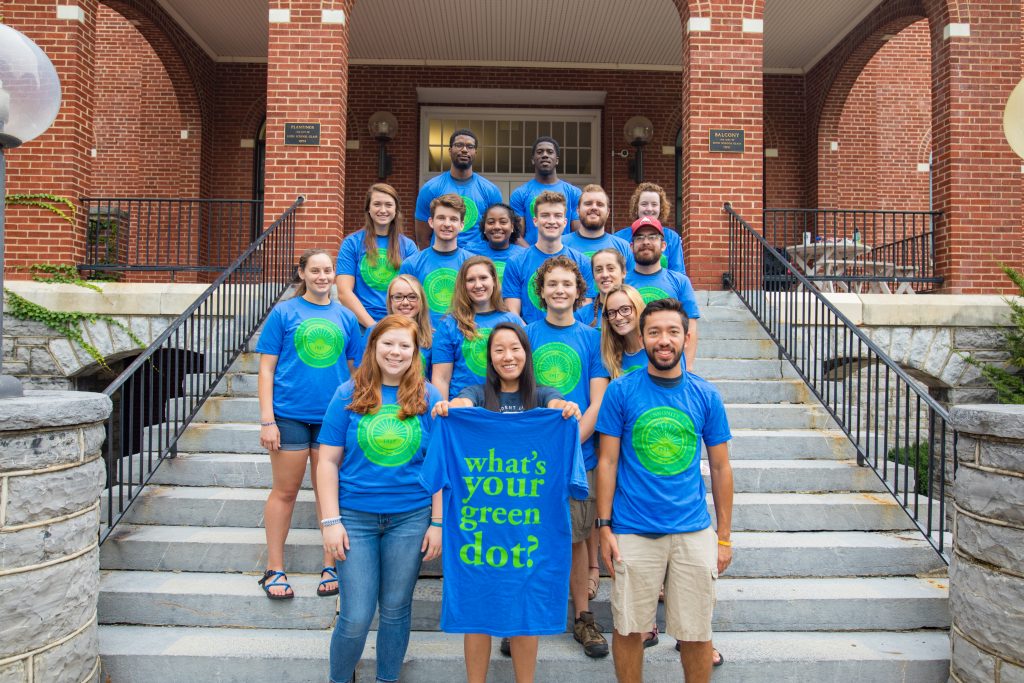Student leaders at Eastern Mennonite University have begun receiving Green Dot proactive bystander training.
During their week-long orientation, 34 community advisors and pastoral assistants participated in the training. This was the first student bystander training on campus; 68 faculty and staff received overview training in spring 2019. The Green Dot rollout will continue with additional sessions offered each semester, and all incoming students will receive training at the beginning of next school year in fall 2020.
With its tagline “No one has to do everything, but everyone has to do something,” the initiative “will be an incredible asset to the EMU community as we stand together so that fewer people are hurt by power-based personal violence,” said Jonathan Swartz, director of residence life, student accountability and restorative justice and Green Dot training facilitator. The Green Dot facilitator team include other leaders in the Student Life team led by grant coordinator Leda Werner and Jess Balac of the Collins Center.

The program trains community members to act so that red dots – marks on a map indicating instances of power-based personal violence such as controlling behavior, threats or sexual assault – are far outnumbered by green dots. Including both reactive and proactive bystander interventions, green dots indicate actions such as defusing a situation through distraction, showing concern for someone who is being harmed, or asking someone who is causing harm to move away.
Barriers to intervening can be “anything from feeling unsafe to not knowing the full context to being concerned about damaging a friendship,” said Werner. “Thinking ahead of time about the ways in which we do feel comfortable intervening helps us to feel more confident to take action when we witness a situation unfolding in front of us.”
In the training, a majority of community advisors (CAs) and pastoral assistants shared that they personally experienced or knew someone who had experienced power-based personal violence, said Addison Hawpe. As a CA, she lives in a residence hall and provides support and leadership to other students, and helps build community.
“We all have times in our past where we wish we would have stood up, and wish we would have done more,” she said. “After this training, I have some more tactics – ‘direct, distract and delegate’ – and ways to be an active bystander. I can definitely pass these on to the residents on my hall as ways that they can be active bystanders, too.”
The training further challenged CAs to create “green areas where red dots don’t even have a chance to come,” said Hawpe.
“One of the main goals of a CA is to create that green zone in our spaces,” said CA Theo Yoder. Green Dot t-shirts, stickers and conversation points will cultivate awareness and help “make it clear that domestic and dating violence, sexual assault and stalking are just unacceptable,” he said.
“It takes a collective effort by all of us to ensure that our campus is safe,” said Werner, who manages a multi-year grant EMU received through the U.S. Department of Justice Office on Violence Against Women (OVW) to combat sexual assault, domestic violence, dating violence and stalking on campus.
Launched in 2006 at the University of Kentucky, Alteristic’s Green Dot curriculum has been used at nearly 800 schools (including at neighboring James Madison University), entities such as the U.S. Department of Justice, Oregon Tradeswomen and Bangor Savings Bank, as well as internationally, according to its website.

Wonderful to see. Thank you.